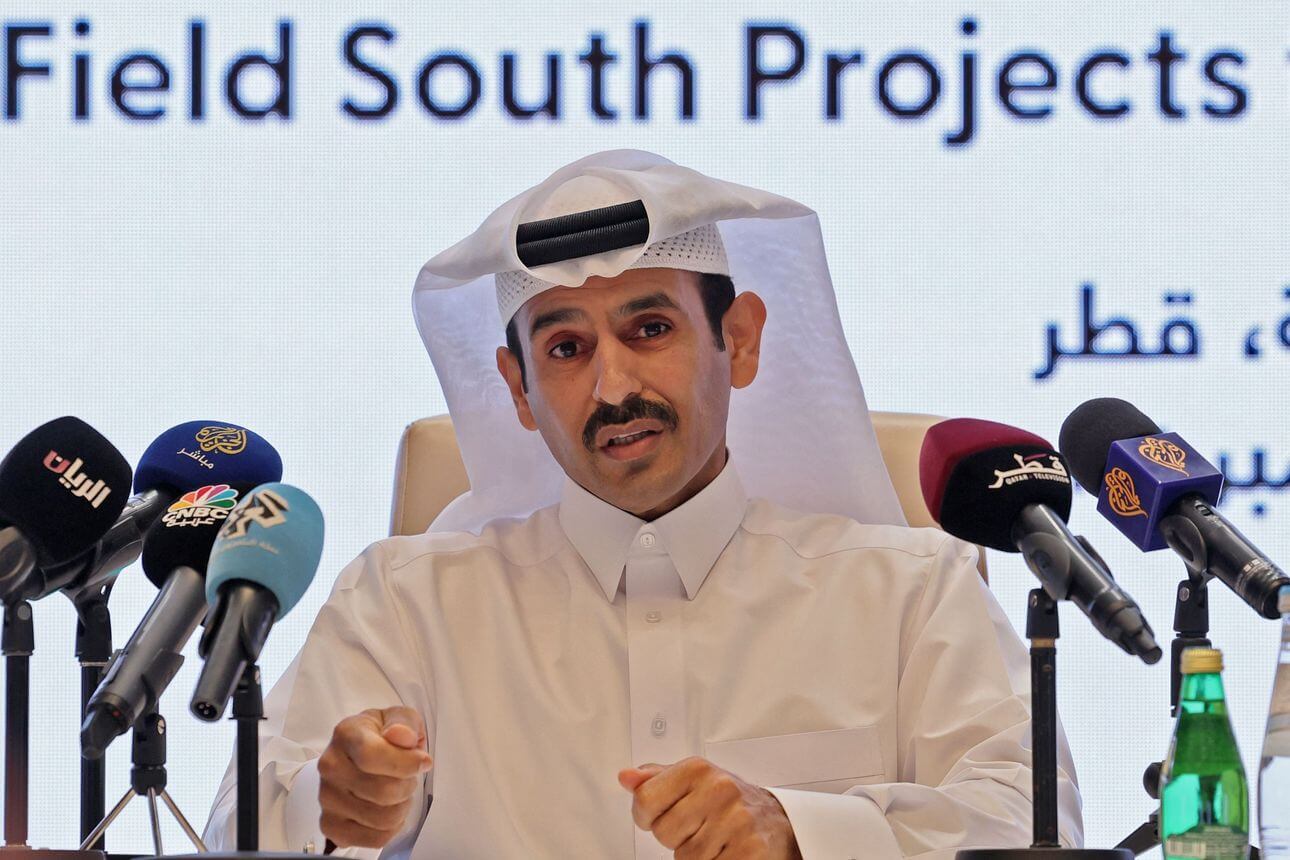Qatari state-run energy company Qatar Energy and American oil giant ConocoPhillips on Tuesday signed a deal to supply two million tonnes of liquefied natural gas (LNG) per year to Germany for 15 years starting from 2026. The gas will be supplied from the Ras Laffan natural gas refinery to the Brunsbüttel LNG terminal in Germany.
Qatari Energy Minister Saad Al-Kaabi, who is also the CEO of Qatar Energy, and ConocoPhillips Ryan Lance praised the deal during a ceremony at Qatar Energy’s headquarters in Doha. The deal provides the two energy companies with an “opportunity to responsibly and securely supply world markets with LNG,” Lance said, calling for new joint ventures to provide reliable sources of LNG supplies to Europe.
Meanwhile, Al-Kaabi remarked, “This is the culmination of efforts between two trusted partners […] over many years, to provide reliable and credible LNG supply solutions to customers across the globe.”
“Germany is the largest gas market in Europe, with significant demand in the industrial, power, and household sectors, and we are committed to contribute to the energy security of Germany and Europe at large,” he emphasised.
Germany signs a 15-year long-term LNG import contract with Qatar (starting from 2026). After all, Berlin decided it does need LNG imports going on as long as into the early 2040s. Security of energy supply trumps everything else | #EnergyCrisis 🇶🇦🔥🇩🇪
— Javier Blas (@JavierBlas) November 29, 2022
German Chancellor Olaf Scholz hailed the agreement as a positive step towards diversifying the country’s energy supplies.
“I am very confident that this is another important building block in a house that we have already built to a large extent,” he said, adding, “Overall, we will ensure that we have a lot of different countries which ensure our energy supply.”
German Economy Minister Robert Habeck, too, praised the deal, saying it would allow Berlin to pursue similar agreements with other countries, while at the same time ensuring that the country’s energy demands are met.
Germany and other European countries have been trying to reduce their dependence on Russian energy following Russia’s invasion of Ukraine. While Germany imports over half of its natural gas from Russia, the European Union imports around 40% of its natural gas from Russia and has been trying to reduce its dependence on Russian energy following the war.
Germany was desperate ideologically to not sign a long-term deal. But they’ve since come to the conclusion that the green transition just isn’t working. no shock. Germany is neither sunny or windy. https://t.co/MoG2WAXQFE
— Peter Zeihan (@PeterZeihan) November 29, 2022
To this end, the EU signed a deal with Azerbaijan to increase gas exports from 8 billion to 20 billion cubic metres by 2027. The bloc also inked an agreement with Egypt and Israel in July to transport Israeli natural gas to Europe via Egypt.
In fact, several European countries are signing bilateral energy deals with major natural gas-producing countries.
In July, France signed an energy deal with the United Arab Emirates to increase Abu Dhabi’s energy supply to Paris. Similarly, Italy signed a $4 billion energy deal with Algeria, which has replaced Russia as Italy’s largest energy supplier.
Qatar has emerged as an option to replace Russian energy, with the tiny Gulf country possessing the third-largest natural gas reserves after Russia and Iran. Doha has repeatedly stated its willingness to supply Europe and other countries with natural gas.
Last week, it signed a landmark $60 billion deal with China to supply Chinese energy company Sinopec with four million tonnes of LNG annually for 27 years from 2026.

